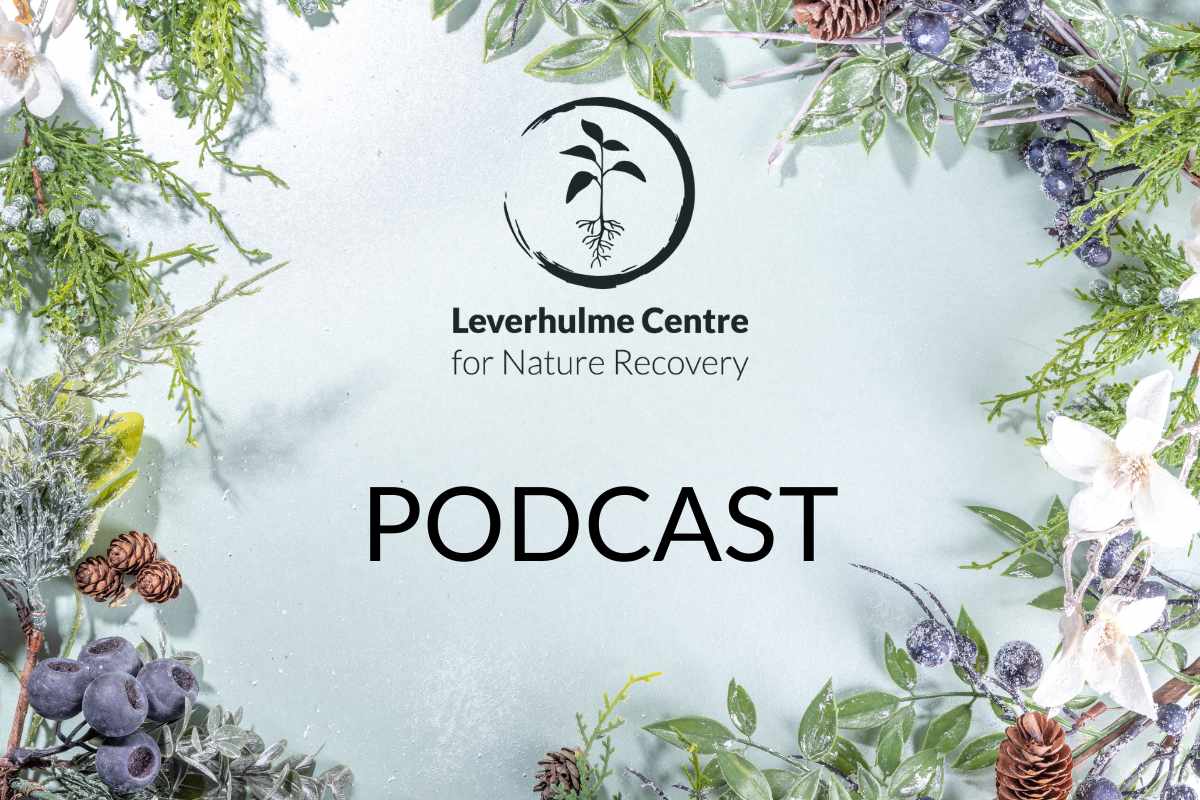Rewilding: People and Participation

This week we look at Rewilding but with a focus on the social perspective. Most of the challenges currently facing nature can be linked to human activity and more specific human prioritizations of one type of land use over another. So when we come to look at solutions to biodiversity loss (Rewilding being one of the most well known) its essential that we understand the role of people in making these solutions work. There are many competing visions for what ‘our land’ might look like and be used for but by creating participatory processes we can gain a richer, more diverse view of what a ‘good’ outcome is – for people, for nature and for future generations. It’s hoped that Nature Recovery projects supported by local communities are likely to be more durable, inclusive and ultimately more sustainable. We explore this fascinating topic with three experts:
Dr. Calum Brown is a land system scientist interested in how land management affects ecosystems and societies. He uses a range of methods to investigate how people’s use of land might change in the future, and the potential for nature-based solutions to mitigate climate change and biodiversity loss. Calum has worked in research and conservation in Scotland, the US, Slovakia and Germany, most recently as a Senior Researcher in Land Use Change & Climate at the Karlsruhe Institute of Technology. Calum has written or co-written more than 60 peer-reviewed research papers and many research proposals for UK, European and international funding. He was raised and educated in the Highlands and holds a Masters from the University of the Highlands and Islands and a PhD (funded by a Microsoft Research Scholarship) from the University of St Andrews.
Josh Davis is a researcher at the Countryside and Community Research Institute. His research focuses on shifts in skills and behaviour in the transition from agriculture to nature-based recovery across England. H examines the underlying motivations, incentives, and barriers to local practitioners (farmers, land managers and agricultural advisers) involved in promoting landscape-scale, nature-based recovery.
Dr. Caitlin Hafferty is a researcher at the Leverhulme Centre for Nature Recovery at the University of Oxford. Caitlin is an expert in participatory, democratic and inclusive decision-making, particularly in planning and environmental decision-making. She campions the contributions of the social sciences to understanding sustainability transformations, and currently work on the social dimensions of nature recovery and Nature-based Solutions (NbS) initiatives in the UK.
Listen to the Podcast here
Links for further reading
Short brief on Recipes for Engagement
Forthcoming webinar: Unlocking the power of engagement for nature recovery and nature based solutions
Highlands Rewilding – Engagement Roadmap
The Leverhulme Centre for Nature Recovery is interested in promoting a wide variety of views and opinions on nature recovery from researchers and practitioners.
The views, opinions and positions expressed within this podcast are those of the speakers alone, they do not purport to reflect the opinions or views of the Leverhulme Centre for Nature Recovery, or its researchers.
The work of the Leverhulme Centre for Nature Recovery is made possible thanks to the support of the Leverhulme Trust.

